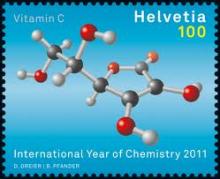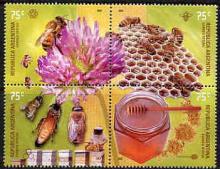The contribution of nutrients from animal pollinated world crops has not previously been evaluated as a biophysical measure for the value of pollination services. This study evaluates the nutritional composition of animal-pollinated world crops. We calculated pollinator dependent and independent proportions of different nutrients of world crops, employing FAO data for crop production, USDA data for nutritional composition, and pollinator dependency data according to Klein et al. (2007). Crop plants that depend fully or partially on animal pollinators contain more than 90% of vitamin C, the whole quantity of Lycopene and almost the full quantity of the antioxidants beta-cryptoxanthin and beta-tocopherol, the majority of the lipid, vitamin A and related carotenoids, calcium and fluoride, and a large portion of folic acid. Ongoing pollinator decline may thus exacerbate current difficulties of providing a nutritionally adequate diet for the global human population.






